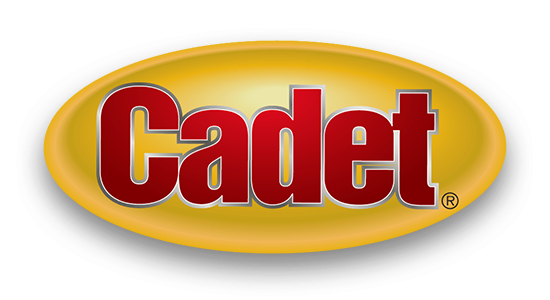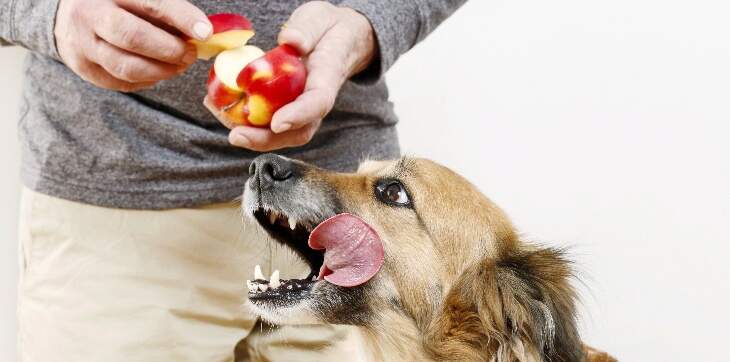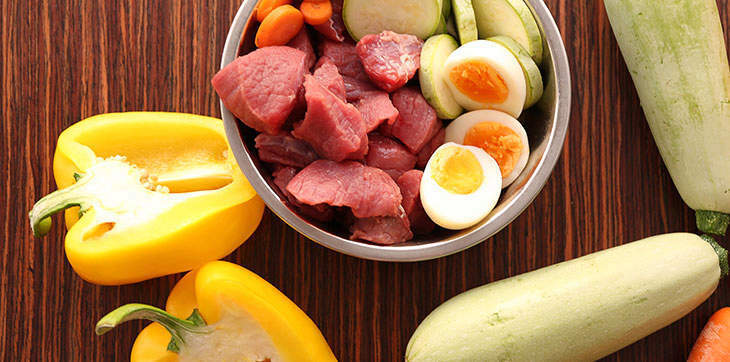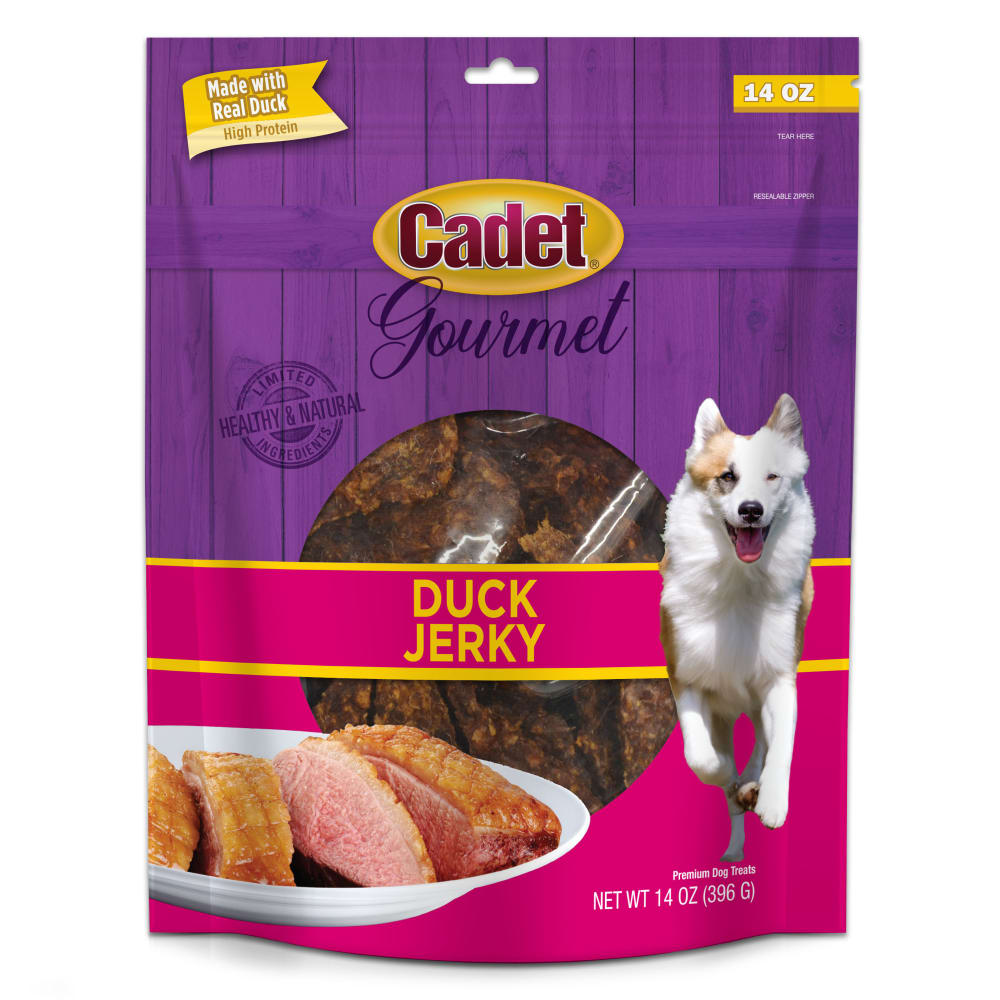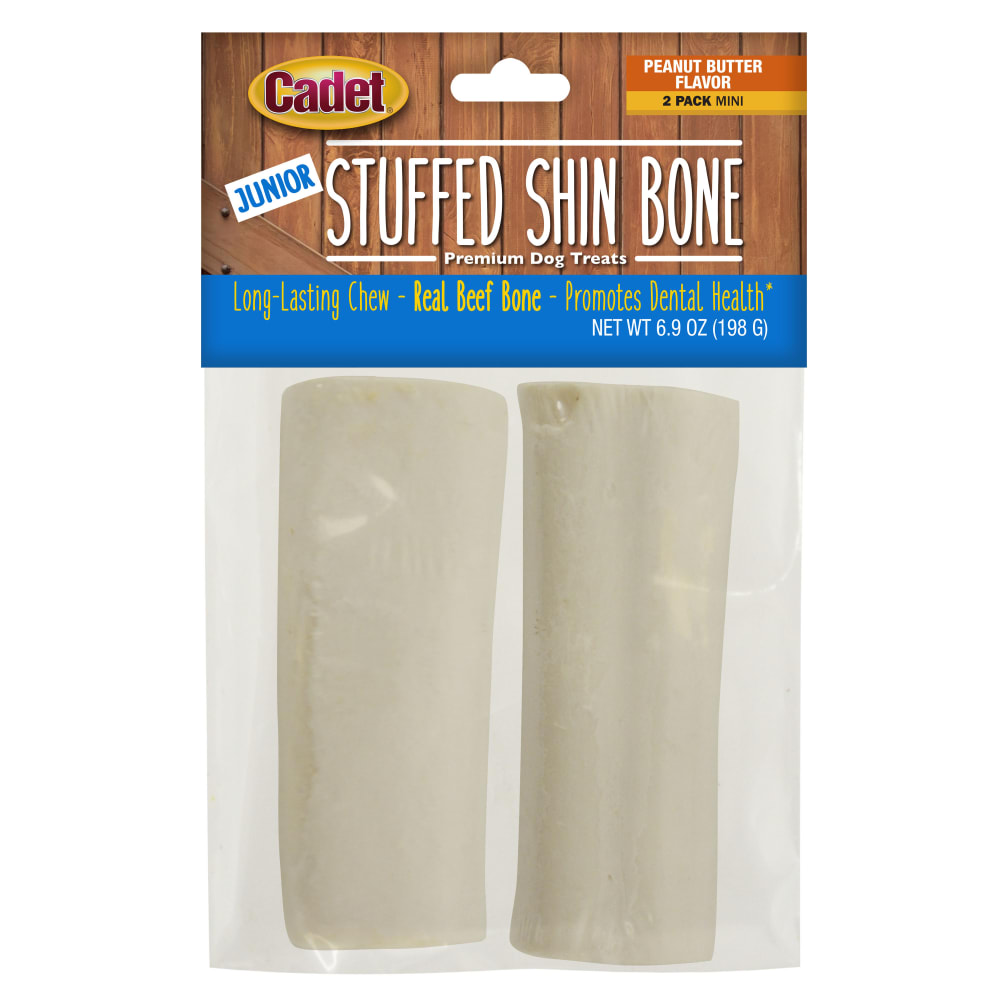What Fruits Are Good for Dogs? Best & Worst Options
Who doesn’t love a delicious piece of fruit? Whether you and your furry friend want to beat the heat with a refreshing treat or savor the flavors of the season together, there’s a whole bowlful of wholesome options to enjoy. Many fruits contain nutrients that are an essential part of your dog’s diet, making them a great way to supplement meals and promote a healthy lifestyle.
Although there is a smorgasbord of safe fruits for dogs, not all choices are right for your pup. Discover what fruits are good for dogs and which ones should stay off the menu.
Do Dogs Need Fruit?
Our canine companions are omnivores and thrive on meats and plant foods alike, but fruit is not a necessary part of their diet. Instead, it should be viewed as a nutritious substitute for treats with artificial or otherwise unhealthy ingredients. Fruit is also great in a pinch when you run out of wholesome dog treats.
Best Fruits for Dogs
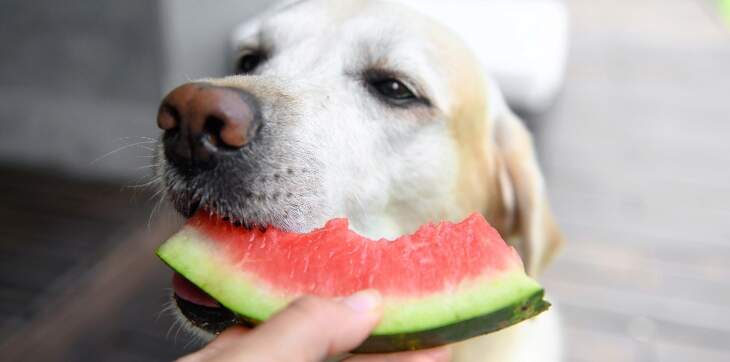
Scrumptious flavor and important nutrients make a winning combination! Confidently give your Cadet these safe, appetizing fruits.
Apples: Let’s kick off this list with an all-time favorite! Apples are low in fat and offer vitamin A, vitamin C, and fiber for a unique array of wholesome benefits. Remove the core and seeds, as they contain traces of cyanide (a substance that is toxic to dogs and humans alike). Cutting up a few apple slices and inspecting them for seeds is the best way to safely give your dog apples.
Watermelon: This sweet summertime classic is the perfect snack after a round of fetch, swimming, or any type of dog exercise. Watermelon contains potassium, vitamin A, vitamin B-6, and vitamin C to promote your pup’s well-being, and its water-rich composition makes for a highly refreshing choice. Don’t give your dog the rind or the seeds because they can lead to intestinal blockage.
Peaches: Here’s another juicy favorite! A few slices of plain peach contain plenty of fiber, which helps your dog’s body maintain a healthy digestive tract. Remove the pit before serving, as it contains cyanide.
Cucumbers: Yes, cucumbers are technically fruits—and highly nutritious ones, too! Another good pick for hydrating your pup after playtime, cucumbers are about 95% water, according to WebMD. They offer vitamin C, vitamin K, and vitamin B-1, as well as nutrients including potassium, magnesium, and copper.
Blueberries: One of the healthiest fruits for dogs and people, blueberries are a superfood that’s too good to pass up. These snacks contain fiber, manganese, vitamin C, and vitamin K; they’re also low in calories and can help manage dog obesity. Antioxidant-rich foods like blueberries can even reduce the effect of brain aging, according to the American Kennel Club.
Pumpkin: This melon may be especially prominent in autumn, but pumpkin is an excellent dog treat any time of year. Its high amount of fiber is good for your dog’s digestive system, and its combination of vitamins, potassium, and iron add to the nutritional perks. Make sure you only give your dog plain, cooked pumpkin; pumpkin pie or canned pumpkin with additives often contain xylitol, a sweetener that is extremely toxic to dogs.
Pears: You might be surprised to learn just how many healthy nutrients you’ll find in a pear. These tangy fruits are packed with vitamin C, vitamin K, copper, fiber, calcium, and potassium for an all-around wholesome snack. Pears also taste great frozen—pass your pooch some ice-cold slices for a special summertime treat! Just don’t let your dog eat the stem, core, or seeds, as they can all pose dangers.
Related: Healthy Human Food for Dogs
Other Tasty Fruits Dogs Can Eat

While the fruits mentioned above are our healthiest picks, there are many more that your pup can safely enjoy. Other popular fruits for dogs include:
- Bananas
- Cantaloupe
- Mangos
- Oranges
- Pineapple
- Strawberries
Peels, pits, and seeds can be harmful to your dog’s health, so be sure to fully remove them. Cutting up fruit into smaller pieces is another good idea; many fruits are high in sugar and should only be fed in small amounts.
What Fruits Are Bad for Dogs?
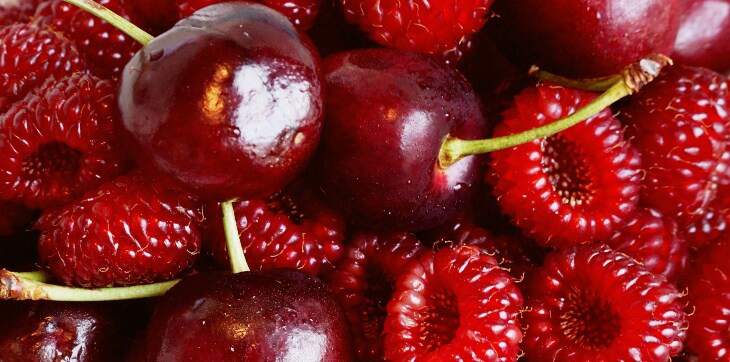
Dogs and humans have different nutritional needs, and some foods that are healthy for people can be a no-go for our four-legged pals. Learn what fruits are bad for dogs and why they should be avoided.
Grapes and raisins: While these fruits are perfectly safe for humans, they are highly toxic to dogs. Grapes and raisins can lead to symptoms including lethargy, vomiting, dehydration, and even kidney failure.
Raspberries: These fruits are a natural source of xylitol. Dogs who eat too many raspberries may also experience vomiting, constipation, upset stomach, or diarrhea.
Cherries: Although the fruit itself is not dangerous, cherry stems and pits both contain cyanide. Cherries are quite small compared to the safe fruits mentioned above, so it will be more difficult to ensure these toxic parts have been fully removed. According to Wag!, signs of cyanide poisoning include tremors, hyperventilation, convulsions, difficulty breathing, and mucus membranes that are bright red.
Avocados: An avocado’s fruit, seeds, and leaves contain a toxin called persin. While not harmful to humans, it can cause diarrhea and vomiting in dogs when consumed in large amounts. Avocados are also high in fat, so it’s best to steer clear of these fruits.
Artificially sweetened fruits: Do not give your dog canned fruit that has syrup or any other human products with artificial sweeteners. These items are often extremely high in sugar and may contain other ingredients that are dangerous to dogs.
What to Do If Your Dog Eats a Toxic Fruit
If you suspect your dog has consumed something toxic, call your veterinarian immediately for advice. Signs may take hours or days to appear, so do not wait for your dog to show symptoms. Let your vet know if your dog has any preexisting conditions, as they can worsen the effects of poisoning. If your vet’s office is closed, you can reach the 24/7 Pet Poison Helpline at 855-764-7661.
